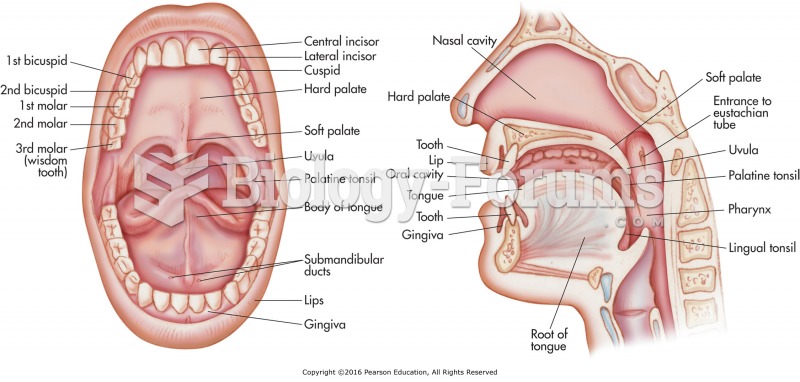|
|
|
Though newer “smart” infusion pumps are increasingly becoming more sophisticated, they cannot prevent all programming and administration errors. Health care professionals that use smart infusion pumps must still practice the rights of medication administration and have other professionals double-check all high-risk infusions.
Warfarin was developed as a consequence of the study of a strange bleeding disorder that suddenly occurred in cattle on the northern prairies of the United States in the early 1900s.
The eye muscles are the most active muscles in the whole body. The external muscles that move the eyes are the strongest muscles in the human body for the job they have to do. They are 100 times more powerful than they need to be.
Eating carrots will improve your eyesight. Carrots are high in vitamin A (retinol), which is essential for good vision. It can also be found in milk, cheese, egg yolks, and liver.
There are more nerve cells in one human brain than there are stars in the Milky Way.
 Correctly administering and interpreting an intelligence test is a skill that takes many years for ...
Correctly administering and interpreting an intelligence test is a skill that takes many years for ...
 Foley catheter: The inflated balloon at the tip of the catheter holds the Foley catheter in place in ...
Foley catheter: The inflated balloon at the tip of the catheter holds the Foley catheter in place in ...





